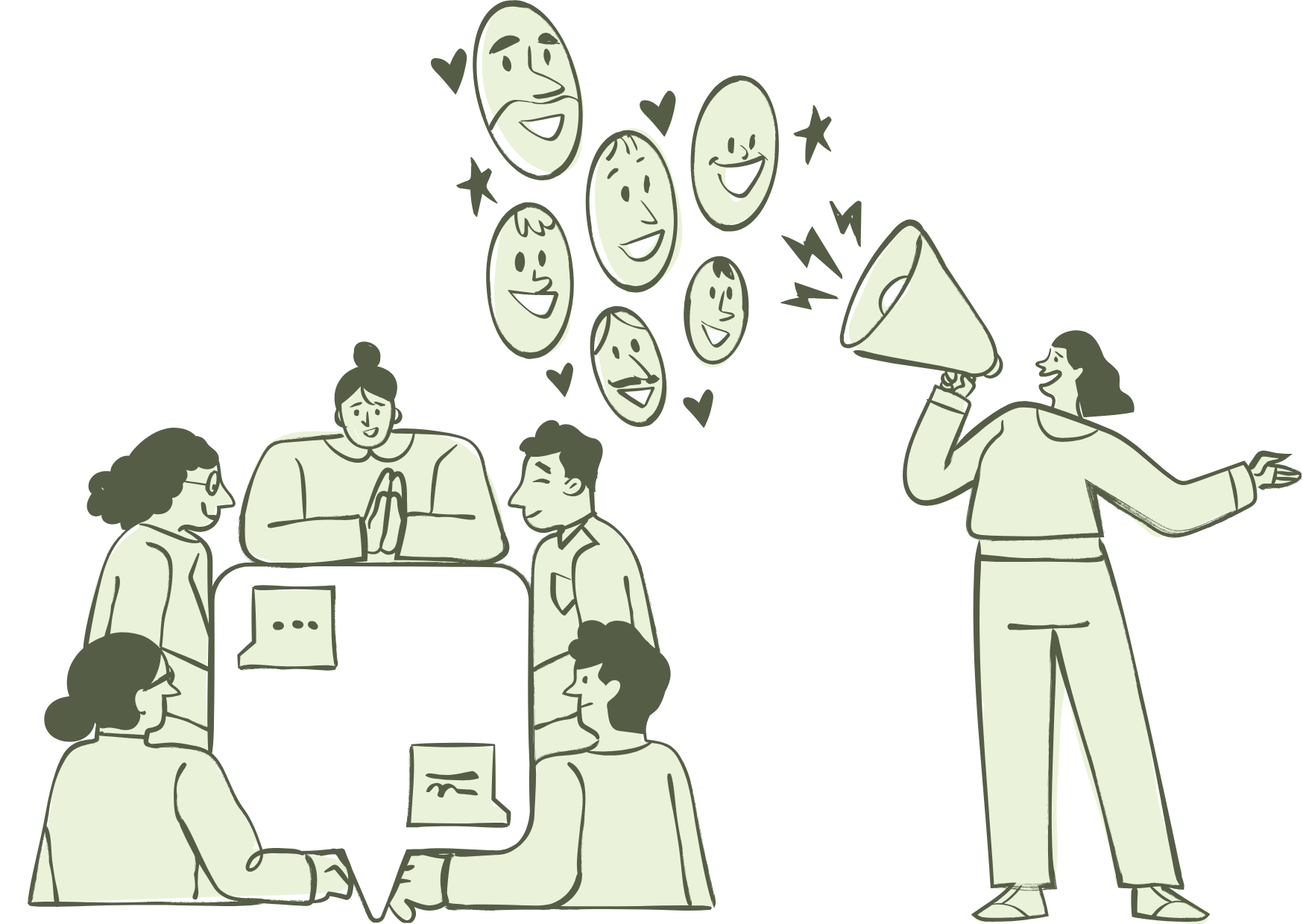Was du für dein*e Freund*in tun kannst // What you can do for your Friend(s)
[lang:de]
Warte nicht, bis du um Hilfe gefragt wirst, sondern sei einfach für mensch da.
- Die Tage direkt nach der Erfahrung sind besonders wichtig zum Reden, danach wird oft schon wieder „zugemacht".
- Vielleicht fühlst du dich unsicher und weißt nicht, wie du dich verhalten sollst. Informiere dich über Trauma, um die Reaktionen besser verstehen zu können. Einfach „normal" sein, ohne zu bemitleiden und ohne aufdringlich zu sein, kann viel helfen. Bemühe dich gleichzeitig den Reaktionen gegenüber tolerant zu sein. Das Wichtigste ist, dass dein*e Freund*in sich in deiner Gegenwart wohl und sicher fühlt.
- Traumatisierte Menschen isolieren sich häufig und haben Schwierigkeiten, um Hilfe zu bitten. Sie wollen kein Mitleid, sondern Verständnis, keine aufgedrängte Hilfe, sondern Einfühlungsvermögen.
- Vergiss nicht, dass Menschen nach traumatischen Erlebnissen anfangs oft ok erscheinen und die Reaktionen erst später auftreten. Sei eine gute Zuhörerin /Zuhörer. Vermeide es, zu bald, zu lange und zu viel zu reden. Oft tendieren wir dazu Rat zu geben, anstatt wirklich zuzuhören…
- Versuch wirklich nachzufühlen, wie es deiner Freundin /Freund ergangen ist, versuch dich
hineinzufühlen, wie es ihr/ihm jetzt geht. Chronologisches Erzählen hilft dem Gehirn das Erlebte zu verarbeiten. Ermuntere, dass deine Freund*in behutsam dazu, das Erlebte der Reihenfolge nach, mit allem, was dazugehört, erzählt, eingeschlossen Gefühle, Sinneseindrücke, Gedanken... - Traumatisierte Menschen empfinden oft die Erledigung selbst kleiner Aufgaben als sehr schwer. Kochen, Abnehmen von Verantwortlichkeiten, etc. können sehr hilfreich sein, aber achte darauf ihre
Selbstbestimmung nicht einzuschränken. - Gereiztheit und Undankbarkeit/Unnahbarkeit sind „Symptome", die sehr häufig vorkommen.
Nimm es nicht persönlich und mach deine Unterstützung nicht davon abhängig. - Zu sagen „Jetzt müsstest du aber langsam mal darüber hinweg sein, nimm dein Leben in die Hand", erreicht meistens nur, dass traumatisierte Menschen sich unverstanden fühlen und Distanz einnehmen.
- Bohren, d.h. krampfhaft versuchen, die Person dazu zu bringen über etwas zu reden, worüber sie nicht reden will, bewirkt ebenfalls Rückzug und Distanzierung.
- Durch einen Mangel an Unterstützung können die Reaktionen verstärkt werden, was als so genannte „sekundäre Traumatisierung" bezeichnet wird. (Dass von TäterInnen keine gute Behandlung zu erwarten ist, ist klar, aber wenn jemand hinterher das Gefühl hast, Freund*innen sind nicht für es
da, bricht die ganze Welt zusammen, der Boden unter den Füßen schwindet….) - Diese sekundäre Traumatisierung kann oft schwerwiegender sein, als das Erlebte und ist daher äußerst ernst zu nehmen. Achte darauf, dass deine Freundin/Freund sich nicht allein gelassen fühlt.
- Auch für dich gilt - diese Zeit kann sehr schwer sein, aber sie geht vorbei. Pass auf dich auf und sei gut zu dir. Rede mit einer Person darüber, wie es DIR geht.
[lang:en]
Don't wait for them to ask for help. Be there for them
- Telling the story in the order in which it happened, chronologically, helps the brain process the experience. Carefully encourage your friend to talk about what happened, what they saw, heard, felt and thought. But don't push if they don’t want to.
- Lack of support can worsen the reaction. This is called "secondary traumatisation" and is to be taken very seriously. It involves "shattered assumptions" - aggressors are known to be brutal, but if you feel that your friends don’t support you afterwards, you feel as though the whole world is breaking down.
- The days immediately after the experience are crucial. This is when all the emotions are easily accessible. It’s good to talk then. Later on, people often close up.
- Often traumatised people withdraw from social activities and isolate themselves. You may not see your friend around anymore. Go and find them.
- Sometimes you might feel you’re up against a brick wall or rejected. See it as a symptom, don't take it personally and hang on in there.
- You might feel insecure about how to help. Find out more about post-traumatic stress so you understand it better. Ask what they need, don’t impose your solutions.
- Behave normally. Pity or self-indulgent "overcare" do not help. The most important thing is that your friend feels safe and warm in your presence.
- Bear in mind that many people seem all right after traumatic experiences and that reactions
may come later. - Listen. Avoid talking too soon, too long and too much. We often long to give good advice rather than be a good listener. Put yourself in their shoes. Try and understand how they feel, not how you might have felt.
- Traumatised people often find it hard to ask for help. Be proactive but not pushy
- Traumatised people often struggle with the smallest tasks. Cooking, shopping, handling the chores for them can be invaluable help, as long as you don’t patronise them or undermine their independence.
- Irritability, ungratefulness and being distant are common reactions. Don't take it personally, keep the support going.
- Saying "You really should have got over this by now, get on with life", is obviously completely unhelpful and will just distance your friend.
- Important: helping and caring can be very hard for you, too. Take care of yourself, do things that make you happy. Talk to someone else about how you feel. Getting support for yourself will help you support others.
- Good therapists can help. Help to find one. The therapist should have some experience of trauma work, otherwise it can be pointless or counter-productive. It also helps if they are politically sympathetic or at least neutral. You’d see a doctor if you had a broken leg. Trauma is a very real emotional wound.

